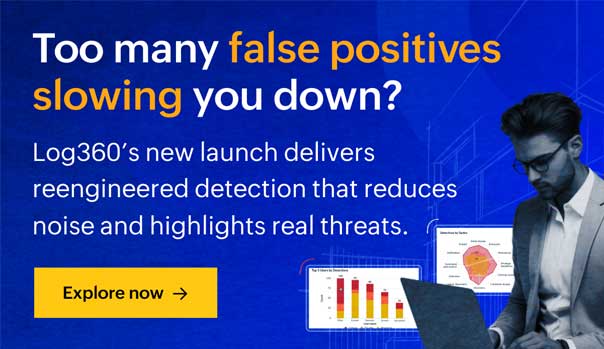What is SIEM as a Service?
SIEM as a Service (SIEMaaS) is typically a cloud-based solution that provides real-time monitoring, analysis, and reporting of security-related data from various sources. This service is designed to help organizations manage and respond to security incidents more effectively by integrating security event data from various sources into a single platform.
SIEMaaS typically includes features such as log collection, threat detection, incident response, and compliance reporting. This model is particularly beneficial for managed security service providers (MSSPs) who need to offer comprehensive security solutions to their clients without the need for significant upfront investments in infrastructure and personnel.
Key features of SIEMaaS
- Centralized data collection : Collects and aggregates log data from various sources, including network devices, servers, and applications.
- Real-time monitoring : Provides real-time analysis of security alerts generated by applications and network hardware.
- Event correlation: Identifies patterns and correlations between events to detect potential security threats or incidents.
- Compliance reporting: Helps organizations comply with various regulatory requirements by generating reports that detail security incidents and audits.
- Alerting: Automatically notifies administrators about critical incidents and potential threats, enabling quick response.
- Threat detection and response: Integrates with other security tools to provide automated responses to detected threats, such as isolating affected systems or blocking malicious traffic.
Benefits of SIEMaaS
- Scalability: Easily scales with the organization’s needs without requiring additional hardware or significant reconfiguration.
- Cost-effectiveness : Reduces the need for on-site hardware and the personnel required to manage it.
- Expert management: Typically managed by security experts, offering enhanced expertise without the need for extensive in-house security teams.
- Reduced complexity: Simplifies security operations by outsourcing the management of the security infrastructure.
- Faster deployment and updates: Cloud-based services can be updated and maintained by the provider, ensuring access to the latest security features and updates.
Considerations for SIEMaaS
- Data privacy and security: Organizations must consider the security practices of the SIEM service provider to ensure data privacy.
- Dependency on internet connectivity: Being cloud-based, it requires a stable internet connection for data transmission and access to the service.
- Integration with existing systems: Integration with existing security tools and workflows is crucial for a seamless security posture.
How to choose between on-premises and cloud service?
On-premises SIEM solutions provide organizations with complete control over their data, as it is stored and analyzed within their own infrastructure. This model offers the following benefits:
- Full control over data and security team: Organizations maintain complete control over their data and cybersecurity team by keeping everything in-house.
- Customization: On-premises SIEM solutions allow for a higher degree of customization to meet specific business requirements.
However, on-premises SIEM deployments can be costly in terms of time, training, and resources required for implementation and maintenance. Additionally, organizations are responsible for ensuring that their SIEM solution is up-to-date and compliant, which can lead to downtime during updates and patches.
On the other hand, cloud-based SIEM (including SIEMaaS) is a growing trend that offers several advantages over on-premises deployments:
- Faster deployment: Cloud-based SIEM solutions can be implemented more quickly, as they come with a team of experts who can configure the service to meet an organization's specific needs.
- Access to expert knowledge: By partnering with a cloud-based SIEM provider, organizations immediately gain access to a team of security experts without the need for extensive employee training.
- Reduced costs: Cloud-based SIEM solutions often have lower upfront costs and eliminate the need for organizations to invest in additional infrastructure, as the provider already owns and maintains the necessary servers and storage.
- Automatic updates: Cloud-based SIEM providers handle all updates and patches, ensuring that the solution remains up-to-date and compliant without causing any downtime for the organization.
As more technologies move to the cloud and the adoption of multi-cloud environments increases, investing in a cloud-based SIEM solution may be a future-orented option for many organizations looking to meet their security and compliance objectives.
How can Log360 MSSP help you with SIEM as a service?
Log360 MSSP can help MSSPs deliver SIEMa aS in several key ways:
Streamlined client management
Log360 MSSP provides a centralized console to efficiently manage multiple clients, with customized dashboards and technician assignment for each client. MSSPs can assign technicians to specific clients and ensure data privacy through role-based access control.
Comprehensive security and compliance
With features like advanced security analytics, threat detection, investigation and response (TDIR), and compliance management capabilities, Log360 MSSP helps MSSPs protect their clients' data and applications from cyber threats, data breaches, and compliance violations while ensuring hassle-free cloud adoption.
Data security
Each client's data is logically separated using secure protocols, and all data is encrypted at rest and in transit. Log360 MSSP is compliant with standards like GDPR, ISO/IEC 27001, and SOC 2, ensuring continuous monitoring to secure clients' data.
Flexible pricing and quick deployment
The solution offers flexible pricing, allowing MSSPs to choose granular data retention policies and storage space allocation for each client. With a simple sign-up process, preconfigured modules, and simple enablement procedures, Log360 MSSP can be quickly deployed to fulfill clients' requirements.
By leveraging Log360 MSSP's capabilities, MSSPs can deliver comprehensive SIEMaaS to their clients, ensuring data security, compliance, and efficient management of security incidents—all while optimizing resource utilization and increasing profit margins.





